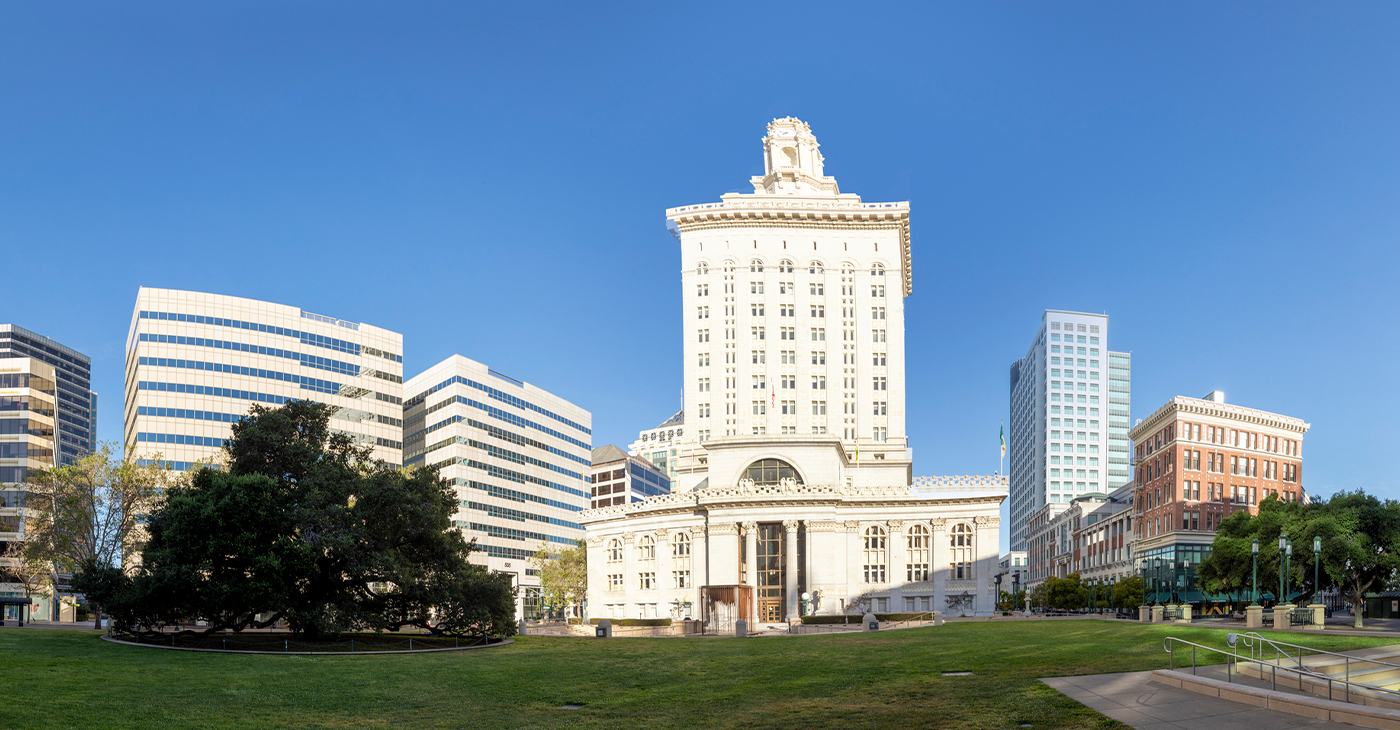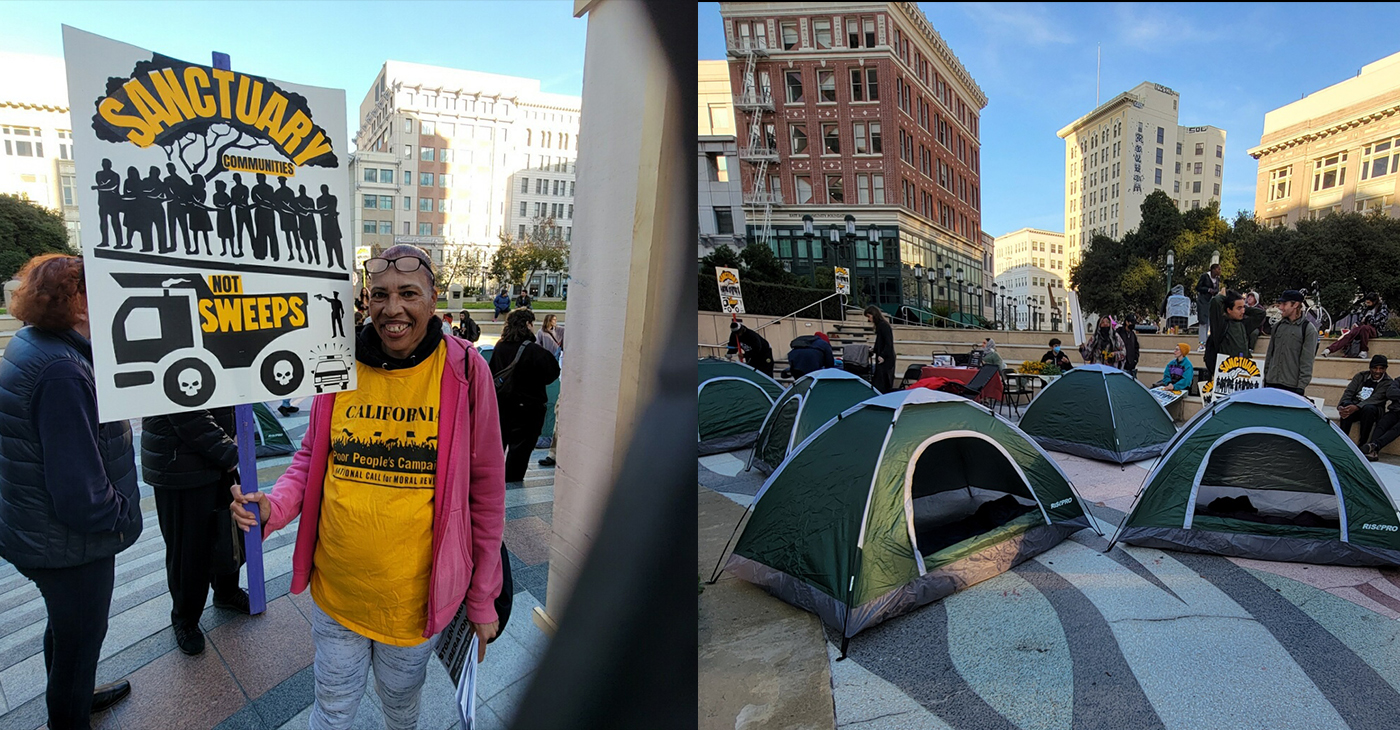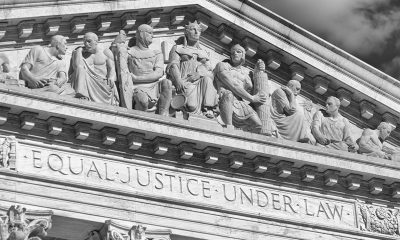Politics
Lawmakers Introduce Bill to Restore Voting Rights Act

In this Dec. 22, 2014 image taken from video, U.S. Rep. John Lewis, D-Ga., discusses the historical drama “Selma” and civil rights in the United States during an interview in Atlanta. He is one of the legislators who introduced the Voting Rights Advancement Act of 2015. (AP Photo/Alex Sanz)
By Zenitha Prince
Special to the NNPA from the Afro-American Newspaper
Legislation that would retool and restore the Voting Rights Act was introduced in Congress on June 24.
Sens. Patrick Leahy (D-Vt.), Dick Durbin (D-Ill.), and Chris Coons (D-Del.) introduced the “Voting Rights Advancement Act of 2015” in the Senate. Reps. John Lewis (D-Ga.) and Terri Sewell (D-Ala.) of the Congressional Black Caucus; Congresswoman Linda Sánchez (D-Calif.), chairwoman of the Congressional Hispanic Caucus; and Congresswoman Judy Chu (D-Calif.), chairwoman of the Congressional Asian Pacific American Caucus, also introduced an identical measure in the House.
The bills were introduced on the eve of the two-year anniversary of the Supreme Court’s decision in Shelby v. Holder, which gutted essential voter protections in the VRA.
The right to vote is “precious” and “almost sacred” and the “most powerful non-violent tool” of a democracy, Lewis said in a statement.
“I think it is clear today that we have come a great distance in this country toward healing the divisions and problems among us, but we are not there yet. This legislation acknowledges that we still have much more work to do,” he said, adding, “I support this legislation and hope that this Congress will do what is right by the people of this nation and pass the voting rights legislation that restores justice, dignity, and equal access to the ballot box in America.”
Lewis is an iconic civil rights leader, who was among the activists who took part in and was beaten during the seminal march across the Edmund Pettus Bridge in Selma, Ala., a campaign that led to the passage of the VRA.
During the 50-year anniversary of the march earlier this year, President Obama noted the half-century birthday of the VRA in August and the continuing challenges to voting rights in the modern era.
“Right now, in 2015, 50 years after Selma, there are laws across this country designed to make it harder for people to vote [and] as we speak, more of such laws are being proposed,” he said. “Meanwhile, the Voting Rights Act, the culmination of so much blood, so much sweat and tears, the product of so much sacrifice in the face of wanton violence, the Voting Rights Act stands weakened, its future subject to political rancor.”
This week, the president praised lawmakers for taking up his charge to restore the voting law.
“The Administration applauds today’s efforts by Members of both the House and Senate to take up this charge to restore the promise of the Voting Rights Act to repair the damage done to this centerpiece of our democracy and honor the sacrifices made by so many who were willing to die to protect the rights it guarantees,” the White House said in a statement.
Civil rights groups have decried Congress’ two-year lag in making the changes to the VRA suggested by the Supreme Court.
“In the past two years, Congress has done nothing to repair the damage to the VRA inflicted by the U.S. Supreme Court’s Shelby decision,” said Elisabeth MacNamara, President of the League of Women Voters of the U.S. “As a result of this inaction, there has been more voter discrimination taking place at ballot boxes across the nation and we are getting dangerously close to having our first presidential election in 50 years without the critical protections once embodied in the VRA.”
Now, many are applauding the advancement of the legislation, especially since the 2016 presidential election cycle has already begun.
The measure would create a new geographic coverage formula that covers all states and is based on current conditions; allow federal courts to bail in states for preclearance; offer greater transparency in federal elections to ensure that voters are made aware of late-breaking changes in voting procedures; and allow courts to halt a questionable election law as soon as litigation begins and not after the potentially discriminatory law has already been imposed in an election cycle.
“We welcome the introduction of this crucial legislation and look forward to working with all members of Congress to rebuild a fully effective Voting Rights Act and to ensure that all Americans are protected from voting discrimination,” Tanya Clay House, public policy director for the Lawyers’ Committee for Civil Rights Under Law, said in a statement.
Activism
Oakland Post: Week of December 25 – 31, 2024
The printed Weekly Edition of the Oakland Post: Week of December 25 – 31, 2024

To enlarge your view of this issue, use the slider, magnifying glass icon or full page icon in the lower right corner of the browser window. ![]()
Alameda County
Last City Council Meeting of the Year Ends on Sour Note with Big Budget Cuts
In a five to one vote, with Councilmembers Carroll Fife and Janani Ramachandran excused, the council passed a plan aimed at balancing the $130 million deficit the city is facing. Noel Gallo voted against the plan, previously citing concerns over public safety cuts, while Nikki Fortunato-Bas, Treva Reid, Rebecca Kaplan, Kevin Jenkins, and Dan Kalb voted in agreement with the plan.

By Magaly Muñoz
In the last lengthy Tuesday meeting of the Oakland City Council for 2024, residents expressed strong opposition to the much needed budget cuts before a change in leadership was finalized with the certification of election results.
In a five to one vote, with Councilmembers Carroll Fife and Janani Ramachandran excused, the council passed a plan aimed at balancing the $130 million deficit the city is facing. Noel Gallo voted against the plan, previously citing concerns over public safety cuts, while Nikki Fortunato-Bas, Treva Reid, Rebecca Kaplan, Kevin Jenkins, and Dan Kalb voted in agreement with the plan.
Oakland police and fire departments, the ambassador program, and city arts and culture will all see significant cuts over the course of two phases.
Phase 1 will eliminate two police academies, brown out two fire stations, eliminate the ambassador program, and reduce police overtime by nearly $25 million. These, with several other cuts across departments, aim to save the city $60 million. In addition, the council simultaneously approved to transfer restricted funds into its general purpose fund, amounting to over $40 million.
Phase 2 includes additional fire station brownouts and the elimination of 91 jobs, aiming to recover almost $16 million in order to balance the rest of the budget.
Several organizations and residents spoke out at the meeting in hopes of swaying the council to not make cuts to their programs.
East Oakland Senior Center volunteers and members, and homeless advocates, filled the plaza just outside of City Hall with rallies to show their disapproval of the new budget plan. Senior residents told the council to “remember that you’ll get old too” and that disturbing their resources will only bring problems for an already struggling community.
While city staff announced that there would not be complete cuts to senior center facilities, there would be significant reductions to staff and possibly inter-program services down the line.
Exiting council member and interim mayor Bas told the public that she is still hopeful that the one-time $125 million Coliseum sale deal will proceed in the near future so that the city would not have to continue with drastic cuts. The deal was intended to save the city for fiscal year 2024-25, but a hold up at the county level has paused any progress and therefore millions of dollars in funds Oakland desperately needs.
The Coliseum sale has been a contentious one. Residents and city leaders were originally against using the deal as a way to balance the budget, citing doubts about the sellers, the African American Sports and Entertainment Group’s (AASEG), ability to complete the deal. Council members Reid, Ramachandran, and Gallo have called several emergency meetings to understand where the first installments of the sale are, with little to no answers.
Bas added that as the new Alameda County Supervisor for D5, a position she starts in a few weeks, she will do everything in her power to push the Coliseum sale along.
The city is also considering a sales tax measure to put on the special election ballot on April 15, 2025, which will also serve as an election to fill the now vacant D2 and mayor positions. The tax increase would raise approximately $29 million annually for Oakland, allowing the city to gain much-needed revenue for the next two-year budget.
The council will discuss the possible sales tax measure on January 9.
Activism
Protesters Gather in Oakland, Other City Halls, to Halt Encampment Sweeps
The coordinated protests on Tuesday in San Francisco, Oakland, Vallejo, Fresno, Los Angeles and Seattle, were hosted by Poor Magazine and Wood Street Commons, calling on cities to halt the sweeps and focus instead on building more housing.

By Post Staff
Houseless rights advocates gathered in Oakland, San Francisco, Los Angeles, and other city halls across California and Washington state this week protesting increased sweeps that followed a U.S. Supreme Court decision over the summer.
The coordinated protests on Tuesday in San Francisco, Oakland, Vallejo, Fresno, Los Angeles and Seattle, were hosted by Poor Magazine and Wood Street Commons, calling on cities to halt the sweeps and focus instead on building more housing.
“What we’re dealing with right now is a way to criminalize people who are dealing with poverty, who are not able to afford rent,” said rights advocate Junebug Kealoh, outside San Francisco City Hall.
“When someone is constantly swept, they are just shuffled and things get taken — it’s hard to stay on top of anything,” said Kealoh.
Local houseless advocates include Victoria King, who is a member of the coordinating committee of the California Poor People’s Campaign. She and Dr. Monica Cross co-chair the Laney Poor People’s Campaign.
The demonstrations came after a June Supreme Court ruling expanded local governments’ authority to fine and jail people for sleeping outside, even if no shelter is available. Gov. Gavin Newsom in California followed up with an order directing state agencies to crack down on encampments and urging local governments to do the same.
Fresno, Berkeley and a host of other cities implemented new rules, making it easier for local governments to clear sidewalk camps. In other cities, such as San Francisco, officials more aggressively enforced anti-camping laws already on the books.
-

 Activism4 weeks ago
Activism4 weeks agoOakland Post: Week of November 27 – December 3, 2024
-

 Activism2 weeks ago
Activism2 weeks agoButler, Lee Celebrate Passage of Bill to Honor Congresswoman Shirley Chisholm with Congressional Gold Medal
-

 Activism2 weeks ago
Activism2 weeks agoPost News Group to Host Second Town Hall on Racism, Hate Crimes
-

 Activism2 weeks ago
Activism2 weeks agoDelta Sigma Theta Alumnae Chapters Host World AIDS Day Event
-

 Business2 weeks ago
Business2 weeks agoLandlords Are Using AI to Raise Rents — And California Cities Are Leading the Pushback
-

 Activism3 weeks ago
Activism3 weeks agoOakland Post: Week of December 4 – 10, 2024
-

 Activism2 weeks ago
Activism2 weeks agoOakland Post: Week of December 11 – 17, 2024
-

 Arts and Culture1 week ago
Arts and Culture1 week agoPromise Marks Performs Songs of Etta James in One-Woman Show, “A Sunday Kind of Love” at the Black Repertory Theater in Berkeley





























































